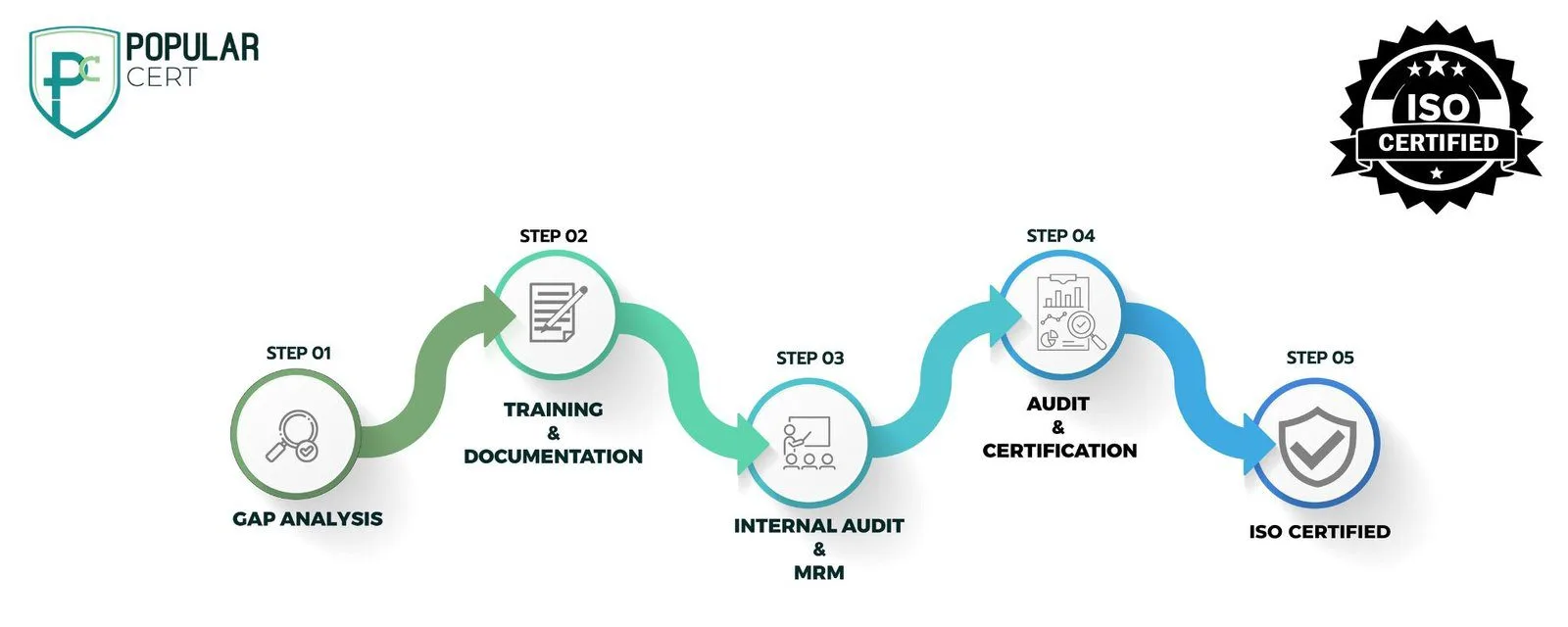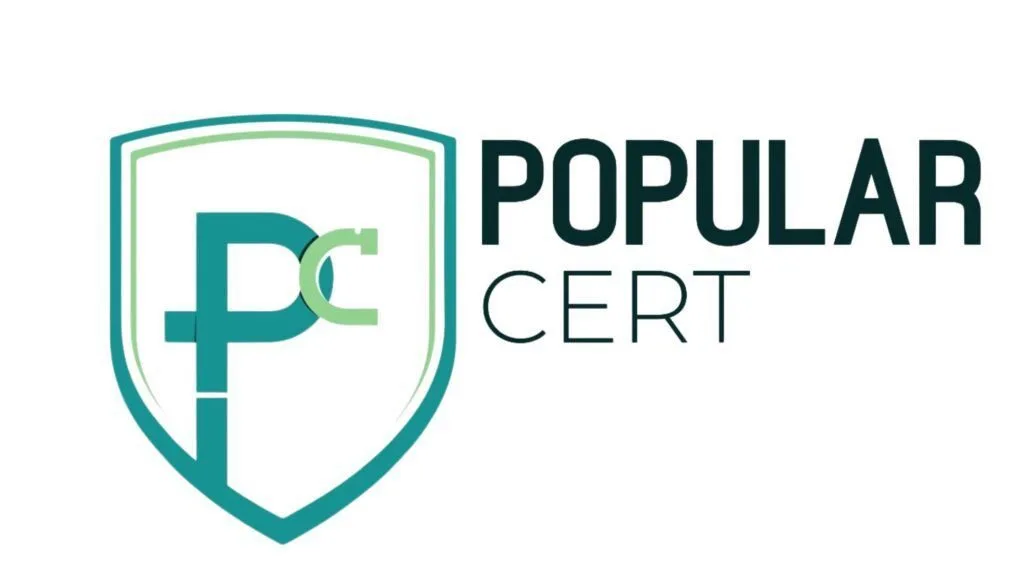ISO 50001 Certification
Get Free Consultation
How to Get ISO 50001 Certification
What is ISO 50001?
ISO 50001 is a globally recognized standard designed to help organizations of all sizes manage and improve their energy performance. Whether you’re a manufacturer, data center, hospital, or office-based business, ISO 50001 gives you a structured framework to reduce energy use, lower costs, and cut down on environmental impact.
Originally launched in 2011 and updated in 2018, ISO 50001 guides companies in building an effective Energy Management System (EnMS). This system helps monitor energy consumption, identify areas of waste, and implement improvements that make operations more efficient and sustainable.
By adopting ISO 50001, your organization can:
Lower utility bills through smarter energy use
Reduce carbon emissions and environmental footprint
Boost profitability with better resource management
Show clients and stakeholders your commitment to sustainability
It also gives your team a clear roadmap to follow turning energy efficiency into a measurable, ongoing improvement process.
The importance of ISO 50001 Certification
In today’s world of rising energy costs and strict environmental regulations, being energy efficient isn’t just good for the planet it’s smart business. ISO 50001 Certification proves that your organization is taking meaningful steps to improve energy performance. When combined with ISO 14001 Certification, which focuses on environmental management, businesses can build a powerful integrated system that reduces waste, lowers carbon emissions, and enhances overall sustainability.
Here’s why it’s important:
Improves Operational Efficiency: Helps identify energy-saving opportunities and apply technologies that reduce waste.
Supports Long-Term Savings: Encourages a culture of continuous improvement, driving cost reductions across departments.
Enhances Reputation & Market Value: Sends a strong signal to customers, partners, and regulators that your business prioritizes responsible energy use.
Boosts Compliance & Transparency: Makes it easier to meet national energy regulations and demonstrate efforts in reducing greenhouse gas (GHG) emissions.
Engages Employees: Builds awareness and accountability around energy use at every level of the organization.
With ISO 50001, you don’t just get a certificate you get a strategy to manage energy smarter, operate more sustainably, and remain competitive in an energy-conscious world.

Steps to obtain ISO 50001 Certification
Conduct Energy Review and Gap Analysis
Assess your organization's current energy management practices and identify gaps compared to ISO 50001 requirements. This step includes analyzing energy consumption, efficiency and areas for improvement.
Develop Energy Management System (EnMS) Documentation
To devise policies, objectives and procedures that adhere to ISO 50001 standards is a must take approach to go. The method contains calculation of energy performance indicators (EnPIs), determination of reduction targets as well as ensuring legal and regulatory compliance.
Employee Training & System Implementation
To provide training to the employees on ISO 50001 standards, the EnMS will be implemented across all departments. By integrating the system into the daily operations, it is assured that energy performance will be monitored and improved continuously.
Internal Audit & Management Review
The internal audit that will be conducted to evaluate EnMS effectiveness and find out non-conformities is important. This is because during the management review the results of the audit that they ensure the system aligns with business goals and compliance requirements must be verified.
Certification Audit & ISO 50001 Certification
Accredited certification body performs an external audit to verify the conformity to ISO 50001 standards. Upon successful completion, the company is awarded ISO 50001 certification, thus showing the dedication it has to energy efficiency and sustainability.
Benefits of achieving ISO 50001 Certification
- Reduced Operating Costs: Significant financial savings can be achieved through increased energy efficiency.
- Improved Efficiency: Encourages a more effective use of your resources, in turn reducing number of claims, returns, reprocesses and rejections - potentially lower levels of regulatory reporting.
- Reduced Carbon Footprint: Actively set goals to reduce your carbon footprint and people will respond positively to your organization.
- Legal Compliance: Understand how statutory and regulatory requirements impact your organization and its customers.
- Proven Business Credentials: Independent verification against a globally recognized industry standard speaks volumes.
- Ability to win more business: Procurement specifications often require certification as a condition to supply, so certification opens doors.
Types Of Certification
- ISO Certification
- ISO 9001 Certification
- ISO 14001 Certification
- ISO 45001 Certification
- ISO 22000 Certification
- ISO 27001 Certification
- ISO 17025 Certification
- ISO 13485 Certification
- ISO 20000-1 Certification
- ISO 22301 Certification
- ISO 50001 Certification
- ISO 37001 Certification
- IATF 16949 Certification
- ISO 29001 Certification
- ISO 31000 Certification
- ISO 20121 Certification
- ISO 10002 Certification
- ISO 41001 Certification
- CE Mark Certification
- Halal Certification
- BIFMA Certification
- RoHS Certification
- HACCP Certification
- GMP Certification
- Organic Certification
- AS9100 Certification
- TL 9000 certification
- SA 8000 certification
- SoC Certification
- GDPR Certification
- HIPAA certification
Get Free Consultation
Our Clients


















ISO 50001 Internal Audit Checklist
What is the cost for getting ISO 50001 Certification?
Taking into consideration factors like organization’s size, complexity and industry sector, the price of ISO 50001 certification significantly varies. The main financial needs are the cost of consultancy services for the system implementation and the gap analysis that is carried out for detecting the pertinent information as well as the company’s internal training. Documentation and description development are also the main associated costs. The certification body may charge other costs for auditing. Small business houses can invest less, whereas the costs for bigger organizations are relatively high.
Additionally, manufacturers have to spend money on surveillance audits and recertification fees. Certification of ISO 50001 is a significant investment business-wise, which is the main driver for sustainable development in the future, due to the long-term advantages brought by efficiency improvement, operating cost reduction, and compliance with regulations.
Why choose PopularCert for ISO 50001 Certification?
PopularCert is a trusted ISO 50001 certification consultant, offering expert guidance to help businesses implement an effective Energy Management System (EnMS). Our experienced consultants provide end-to-end support, including gap analysis, documentation, training, internal audits and certification assistance. We tailor cost-effective solutions to meet your organization’s specific energy management needs, ensuring compliance with ISO 50001 standards. By choosing PopularCert, you gain access to a seamless certification process, helping you enhance energy efficiency, reduce costs and achieve sustainability goals.
GET A FREE CONSULTATION NOW
FAQ
What is the time-frame for obtaining ISO 50001 certification?
ISO 50001 certification can be obtained within the time span of 3 to 6 months varying with the size of the business, existing energy management systems and audit preparedness.
What type of organizations needs ISO 50001 certification?
ISO 50001 has to be followed by all organizations, regardless of size and the industry they are in, such as; the manufacturing, energy, healthcare, transportation or hospitality sector, to gain the ISO 50001 certification. In this way, they can increase the energy efficiency, reduce the cost and make the business more sustainable as well.
How to confirm if an organization is ISO 50001 certified?
ISO 50001 compliance should be verified through the organization’s official certificate, its issuing certification body or the accredited registries maintained by certification authorities.
Is ISO 50001 certification a complex & heavy-documented process for organizations?
ISO 50001 certification requires detailed documentation and process implementation, but with expert guidance, organizations can efficiently streamline energy management systems and achieve certification without excessive complexity.
